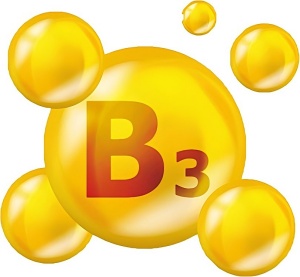Is vitamin B3 the same as nicotinamide?

Vitamin B3 and nicotinamide are closely related, but they are not exactly the same thing. Both belong to the same vitamin family and are used by the body in similar ways, but they are different forms of the same nutrient. Nicotinamide is one of the active forms of vitamin B3, and it is commonly used in supplements, skincare, and medical treatments. Understanding the differences and how they work in the body can help you make better choices for your health and nutrition.
What Is Vitamin B3?
Vitamin B3 is a water-soluble vitamin that plays a critical role in converting food into energy. It belongs to the group of eight B-complex vitamins. There are two main forms of vitamin B3: niacin (also called nicotinic acid) and nicotinamide (also known as niacinamide). Both are converted into active forms in the body, but they have different chemical structures and some differences in how they affect the body.
What Is Nicotinamide?
Nicotinamide is a form of vitamin B3 that is often used in dietary supplements and skincare products. It’s the amide form of niacin and is considered to be a more stable and gentle option, especially when used in higher doses. Unlike niacin, nicotinamide does not cause flushing—a common side effect of niacin that causes redness and warmth in the skin. This makes nicotinamide a preferred option in many health and beauty applications.
How Are They Used in the Body?
Both niacin and nicotinamide are converted in the body to nicotinamide adenine dinucleotide (NAD), a coenzyme involved in hundreds of metabolic reactions. NAD plays a major role in energy production, cell repair, and DNA maintenance. Whether you get your vitamin B3 from niacin or nicotinamide, your body will still produce NAD from it. However, nicotinamide is often preferred for therapeutic use because of its lower risk of side effects.
Nicotinamide in Skincare
Nicotinamide has gained popularity in recent years as a key ingredient in skincare products. It helps improve the skin barrier, reduce redness, minimize pores, and control oil production. It’s also been studied for its role in preventing acne and reducing hyperpigmentation. Because it doesn’t cause flushing, it’s a safe and effective option for topical use on sensitive skin types.
When to Choose Nicotinamide
If you're looking to increase your vitamin B3 intake without the side effects of niacin, nicotinamide is a solid option. It’s commonly used in multivitamins, energy metabolism supplements, and skin health formulas. For people who need high doses of vitamin B3 for medical reasons, doctors often recommend nicotinamide because it’s better tolerated and still provides the same essential benefits.
Key Differences in Summary
The main difference lies in the effects. Niacin can help lower cholesterol and has cardiovascular benefits, but it may cause uncomfortable flushing. Nicotinamide doesn’t affect cholesterol but is more commonly used for skin health and general vitamin supplementation. Both serve as sources of vitamin B3 and support the body’s ability to make energy and maintain healthy cells.
